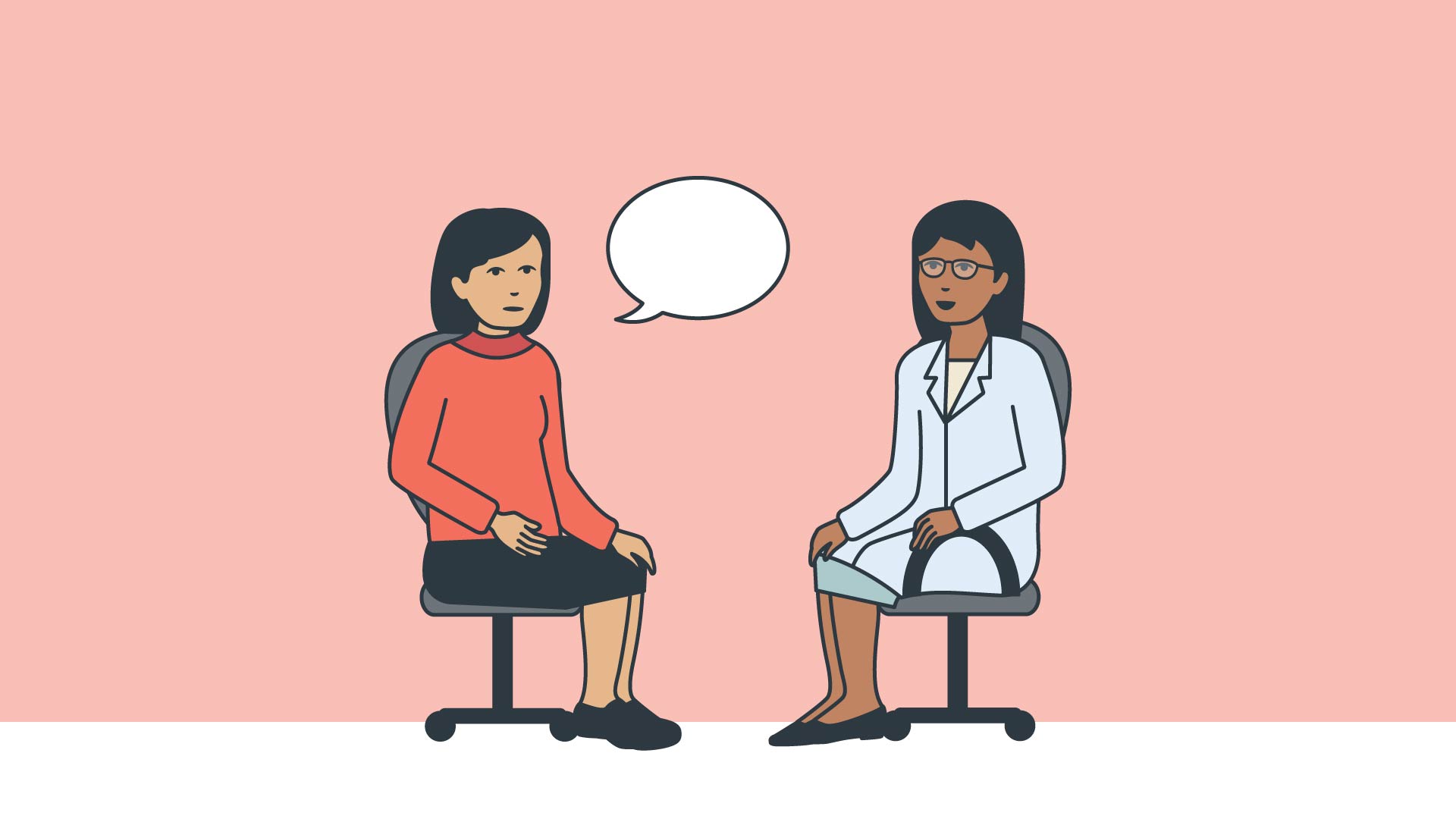Everyone has the right to checks.
Your doctor can tell you what checks you need.
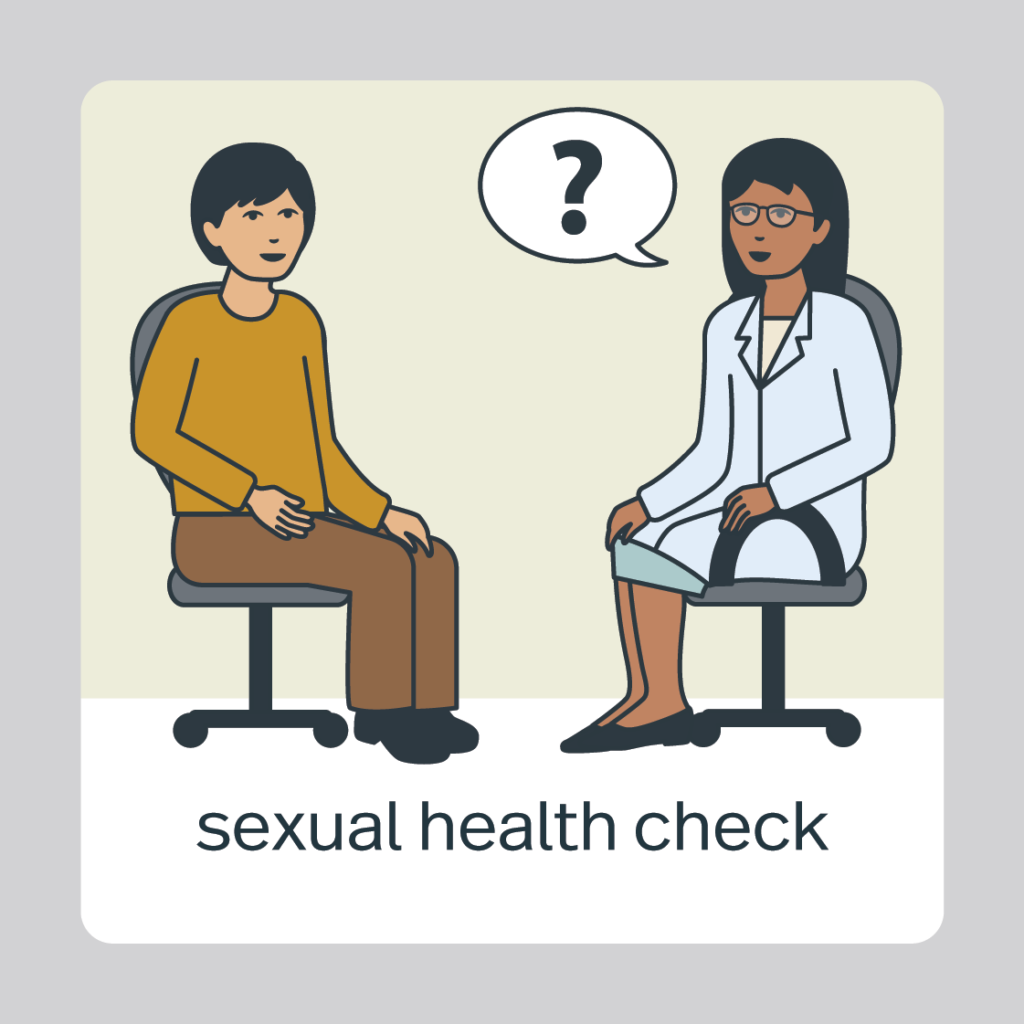

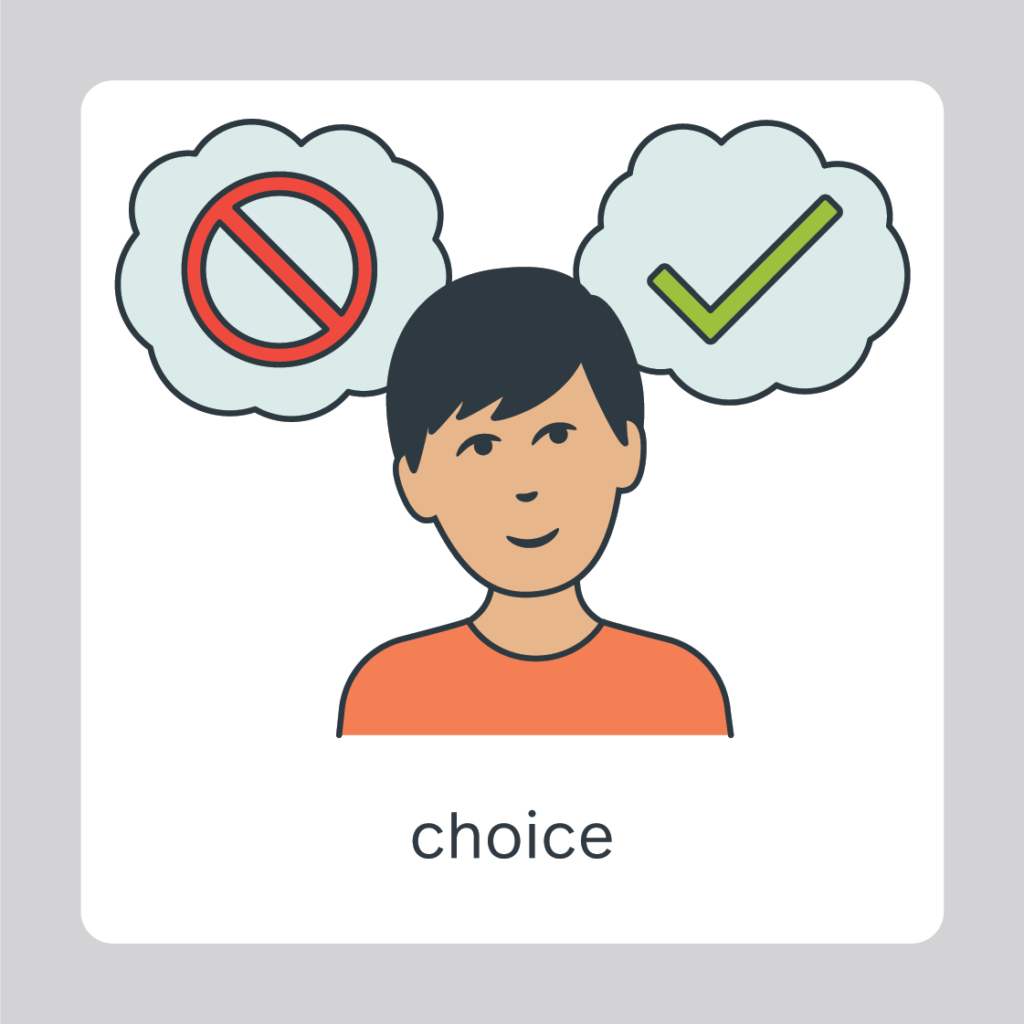
Sexually Transmissible Infection (STI) Checks
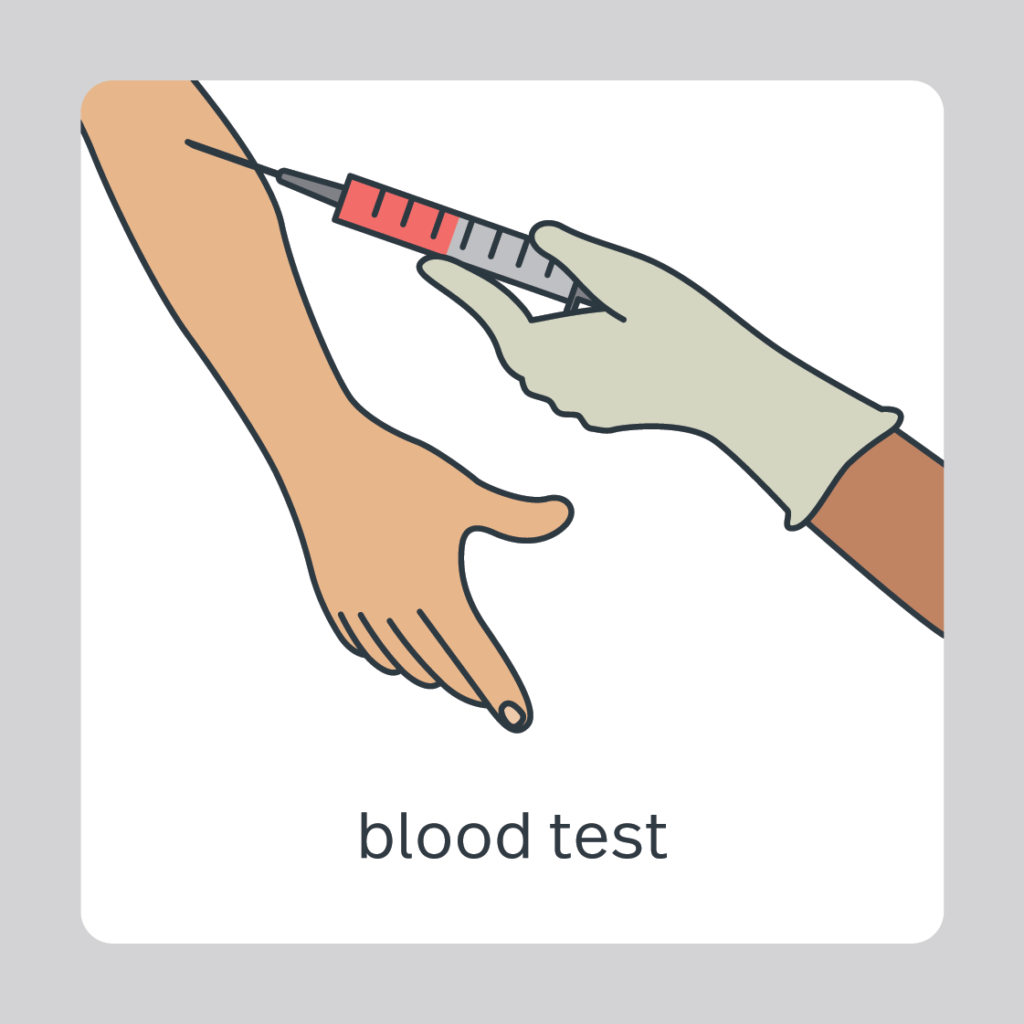
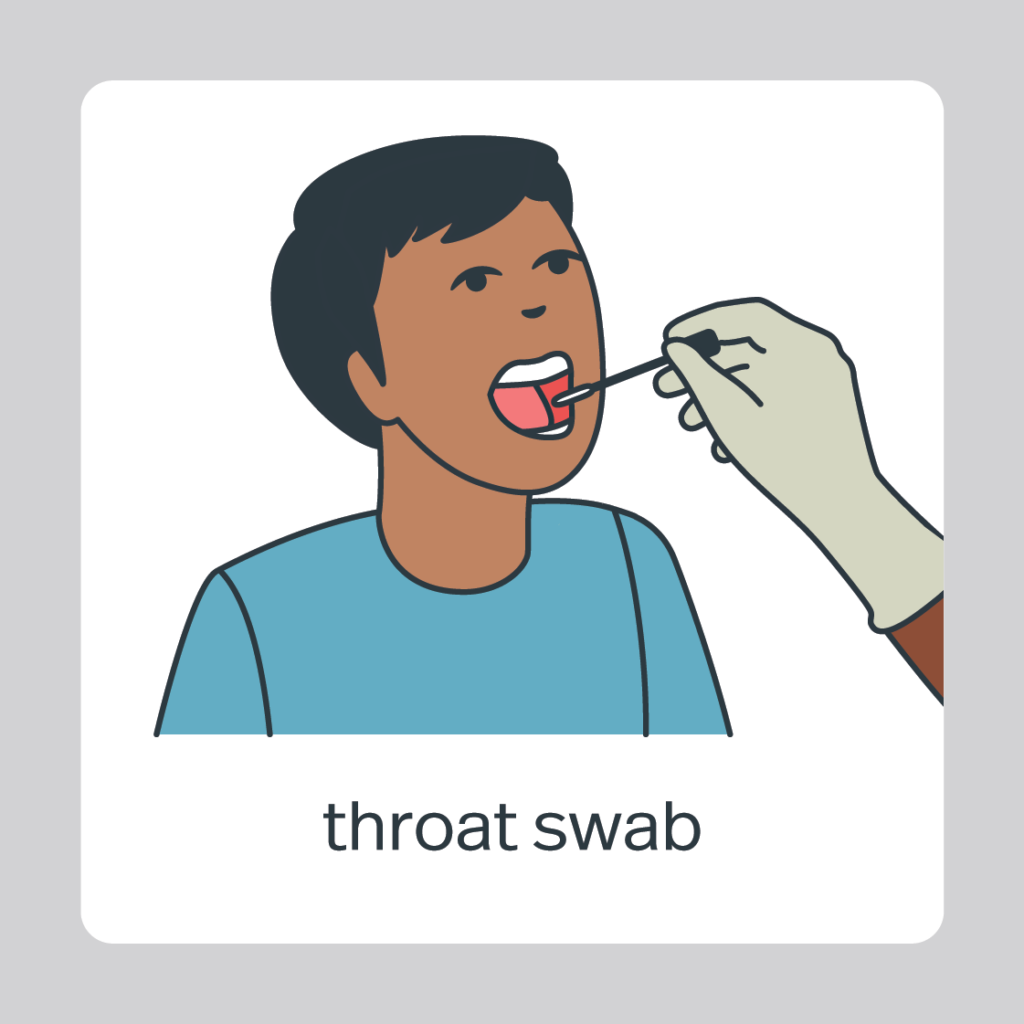
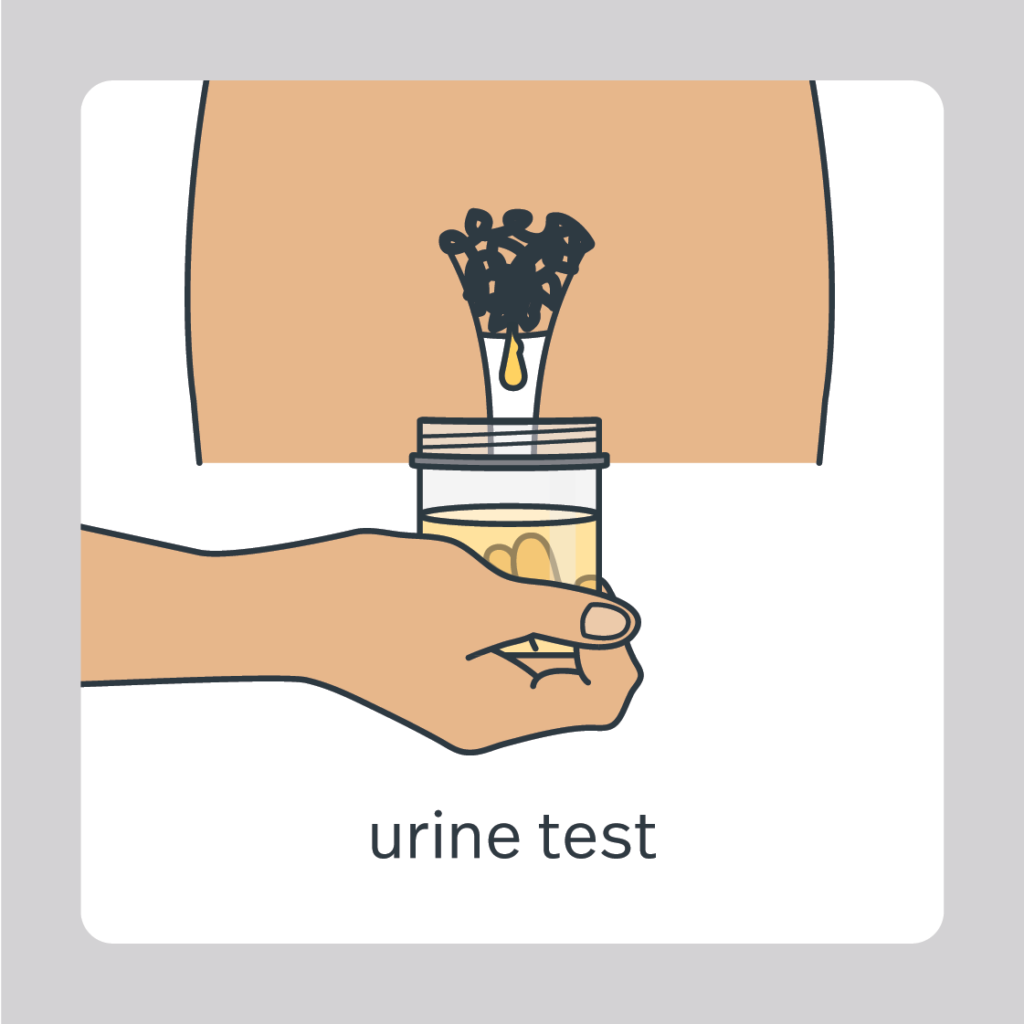
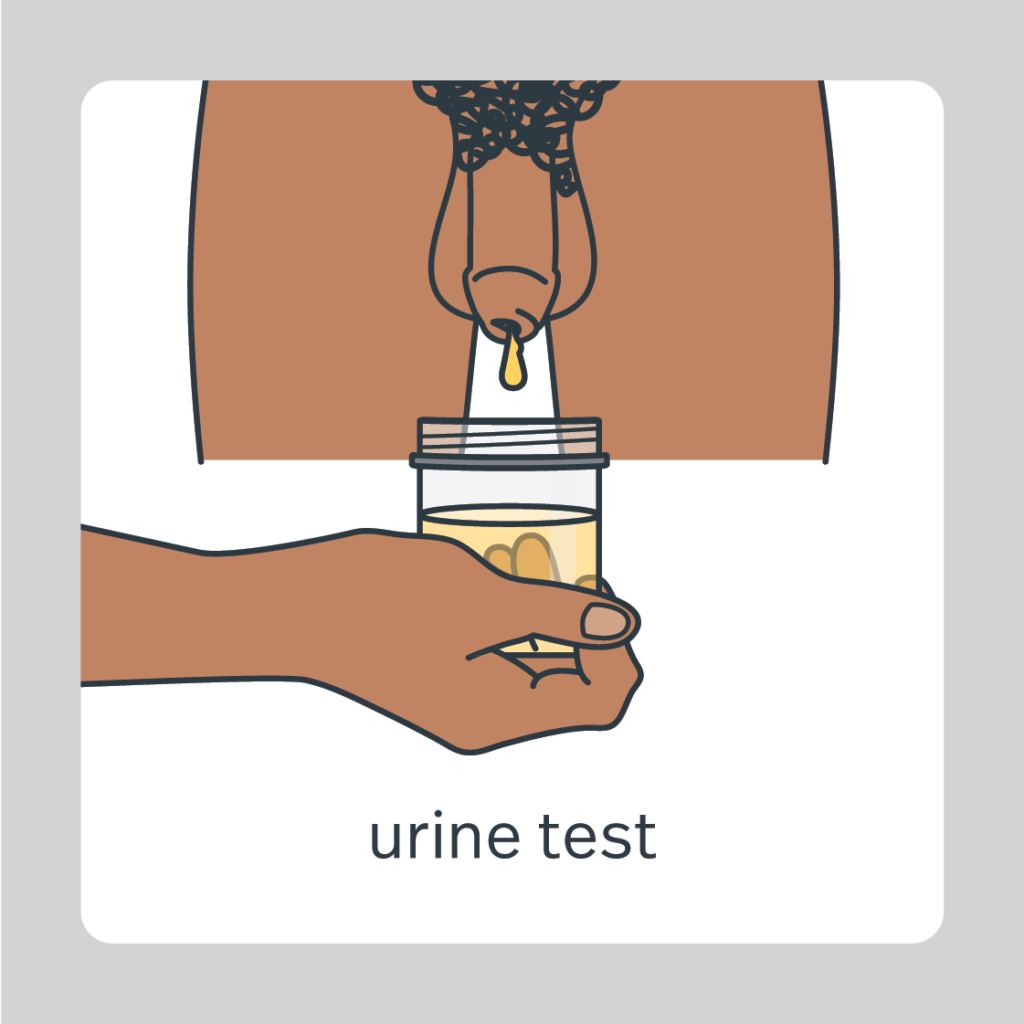
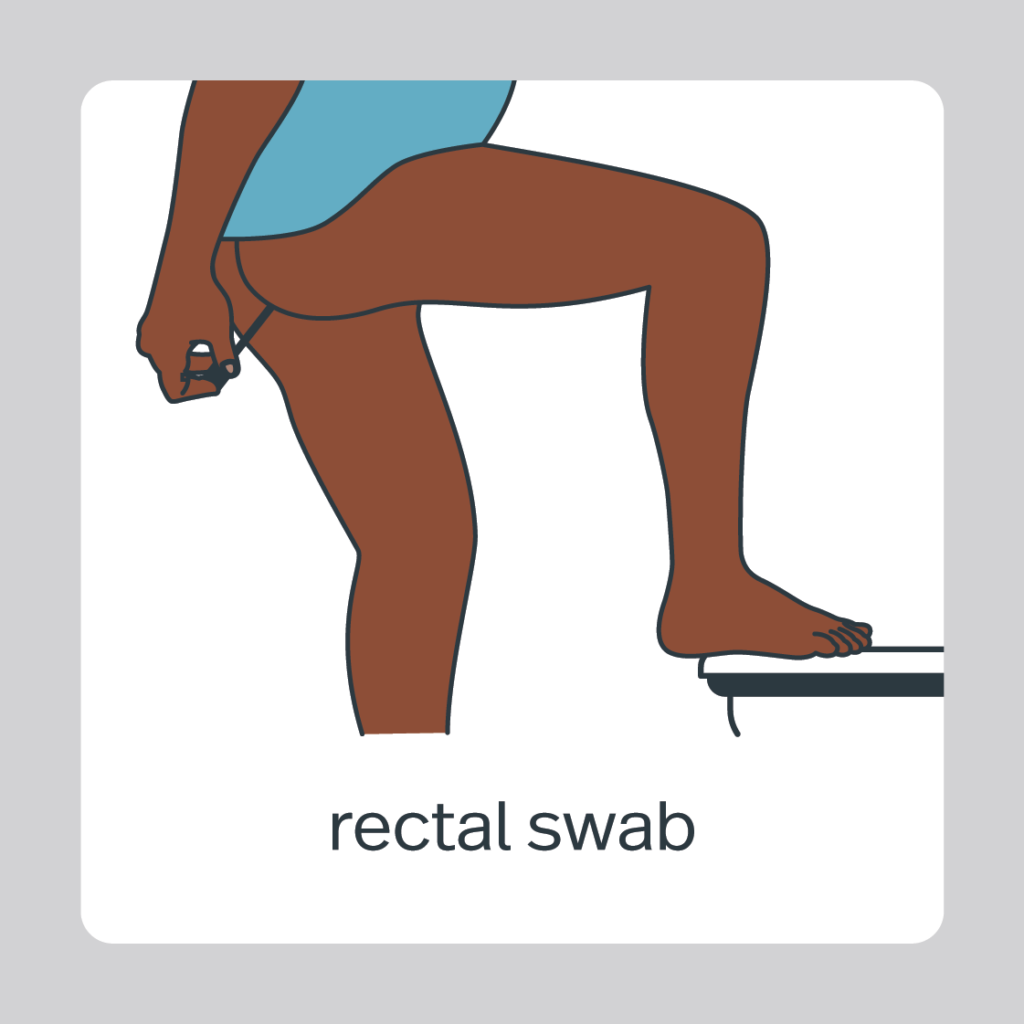
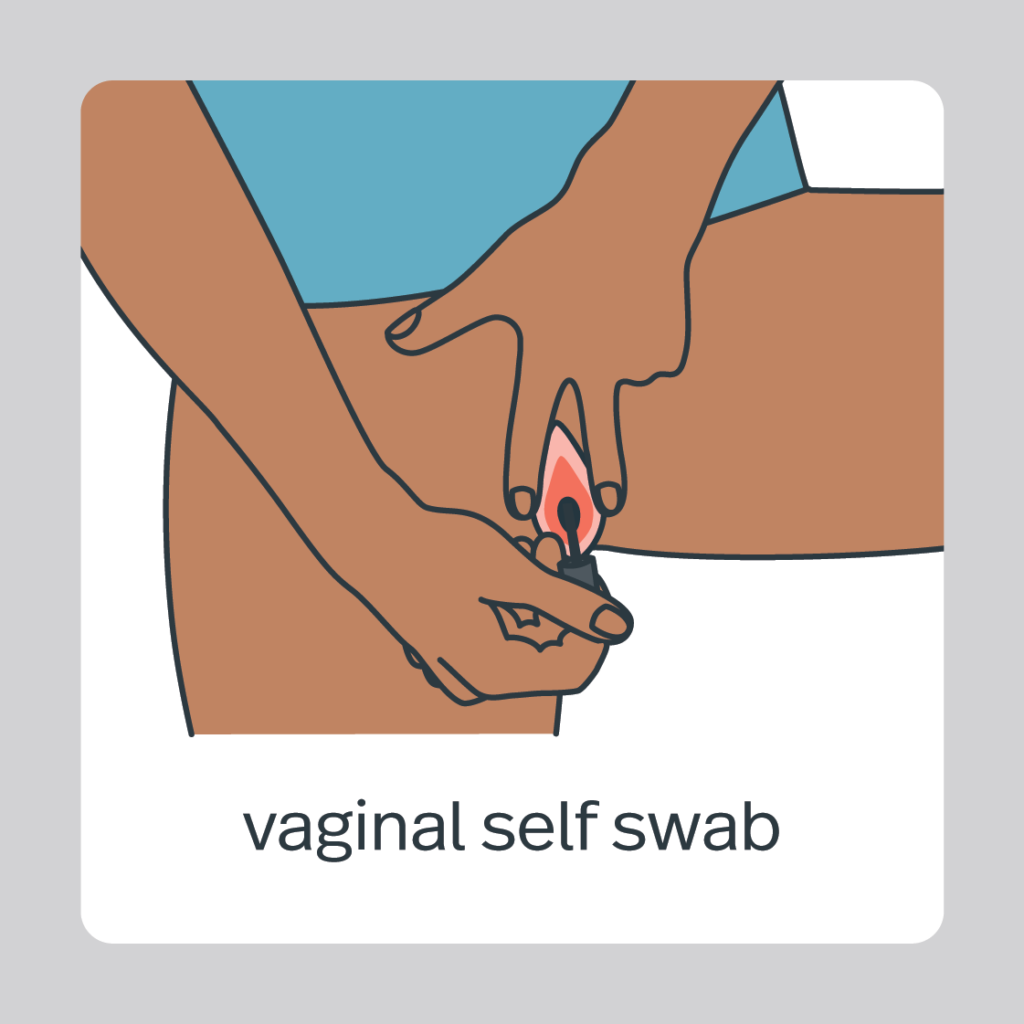
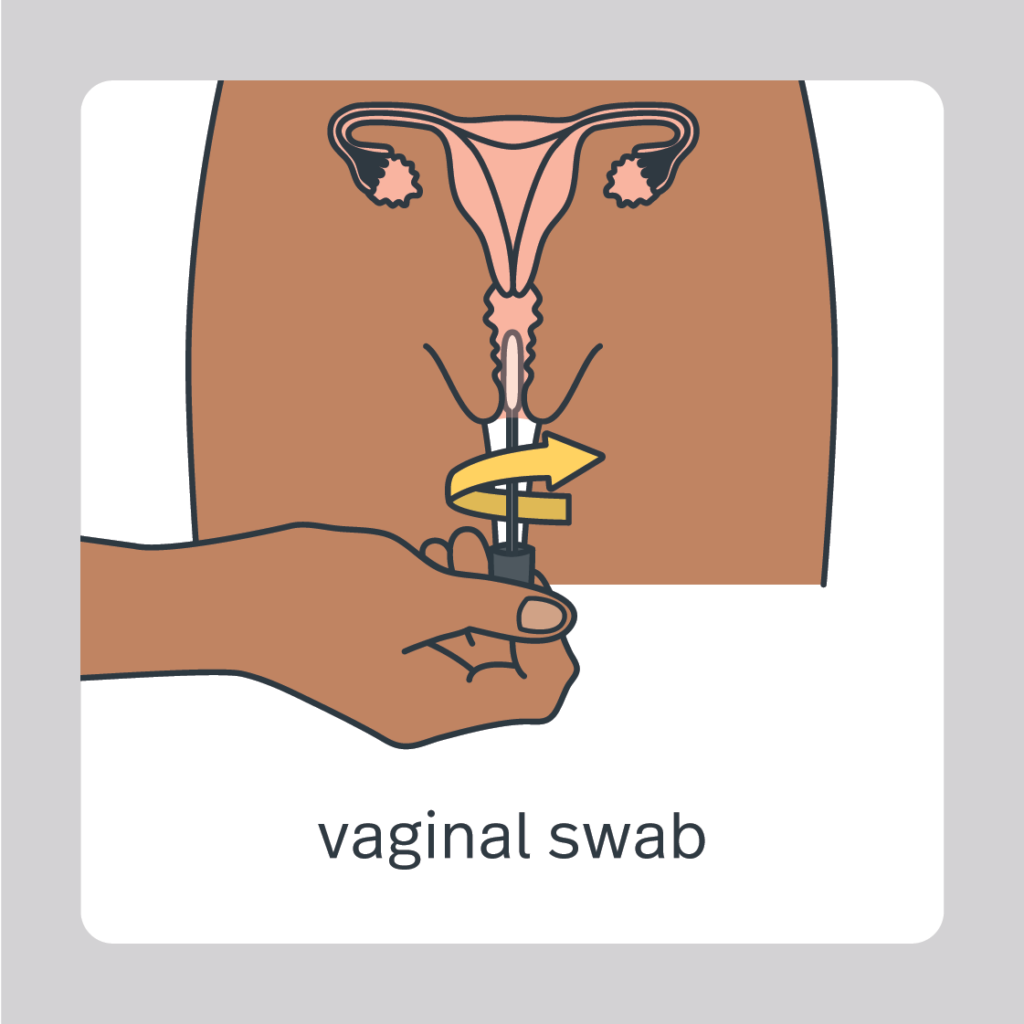
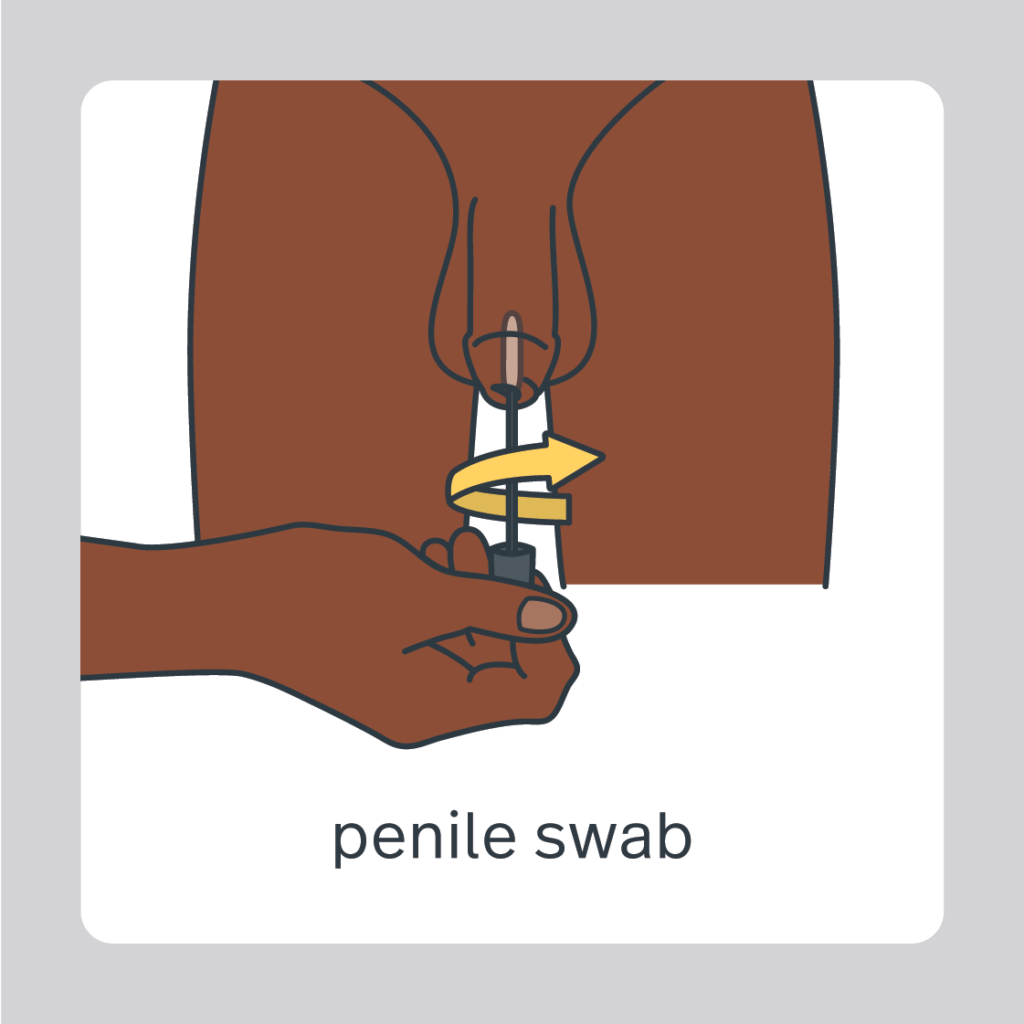

You can see your doctor or a sexual health clinic for an STI check. You can withdraw your and stop the examination at any time.
Cervical Check
It is recommended that people with a get a cervical check. Most people with a vagina have a . A cervical screen is what doctors do to check your . This tests for a virus that could lead to cancer. If you have had sex or your genitals have touched someone else’s genitals you can choose to have a cervical check.


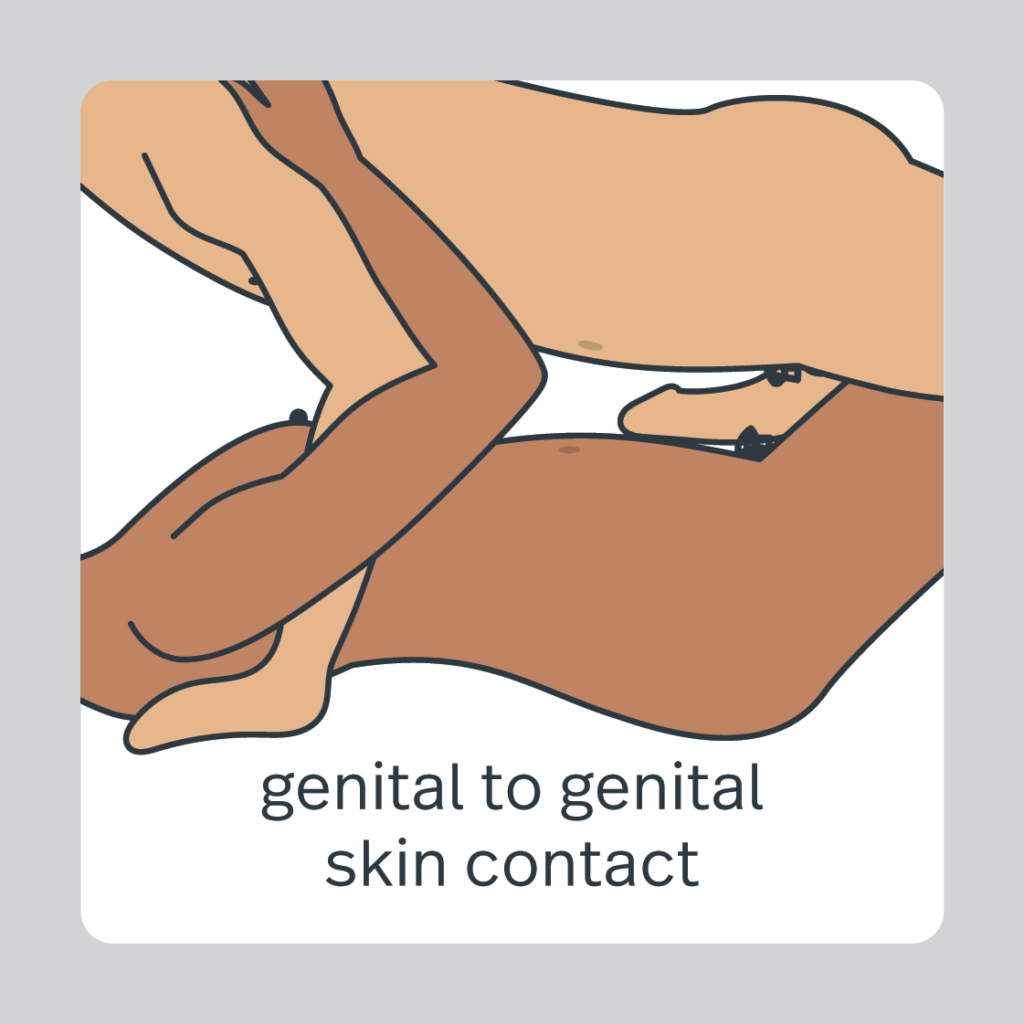

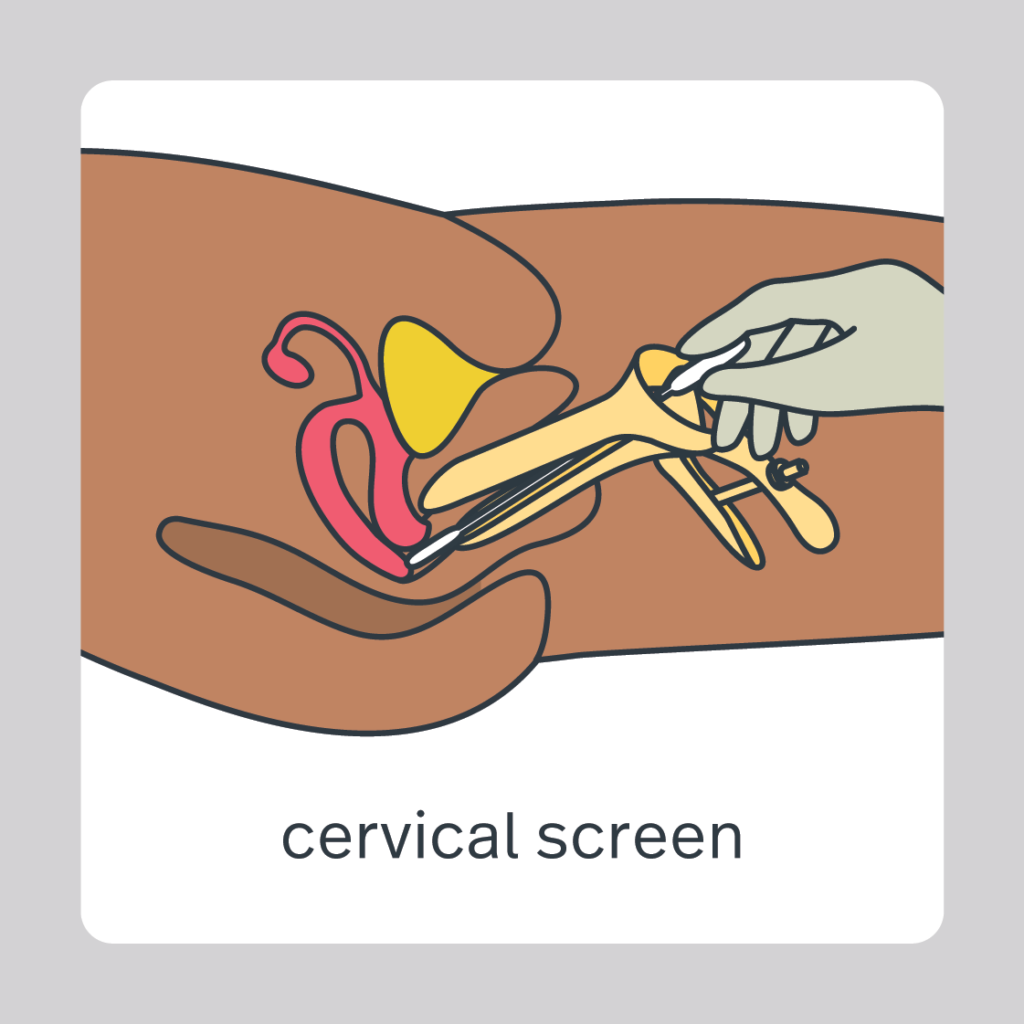

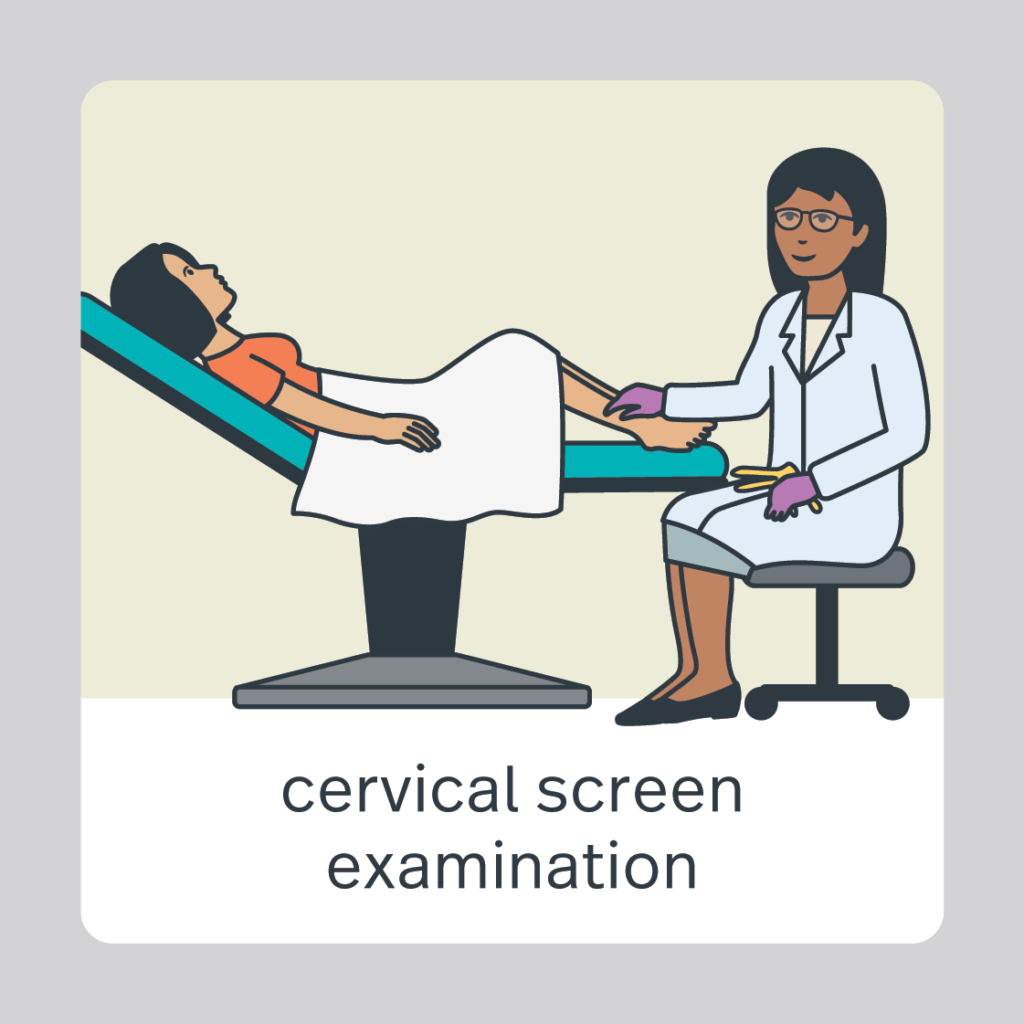
Cervical checks are recommended
every 5 years from when you are
25 years of age.
There is a vaccine that can protect
you from this virus. You can ask
your doctor about this.


Other Sexual Health Checks
Breast Checks
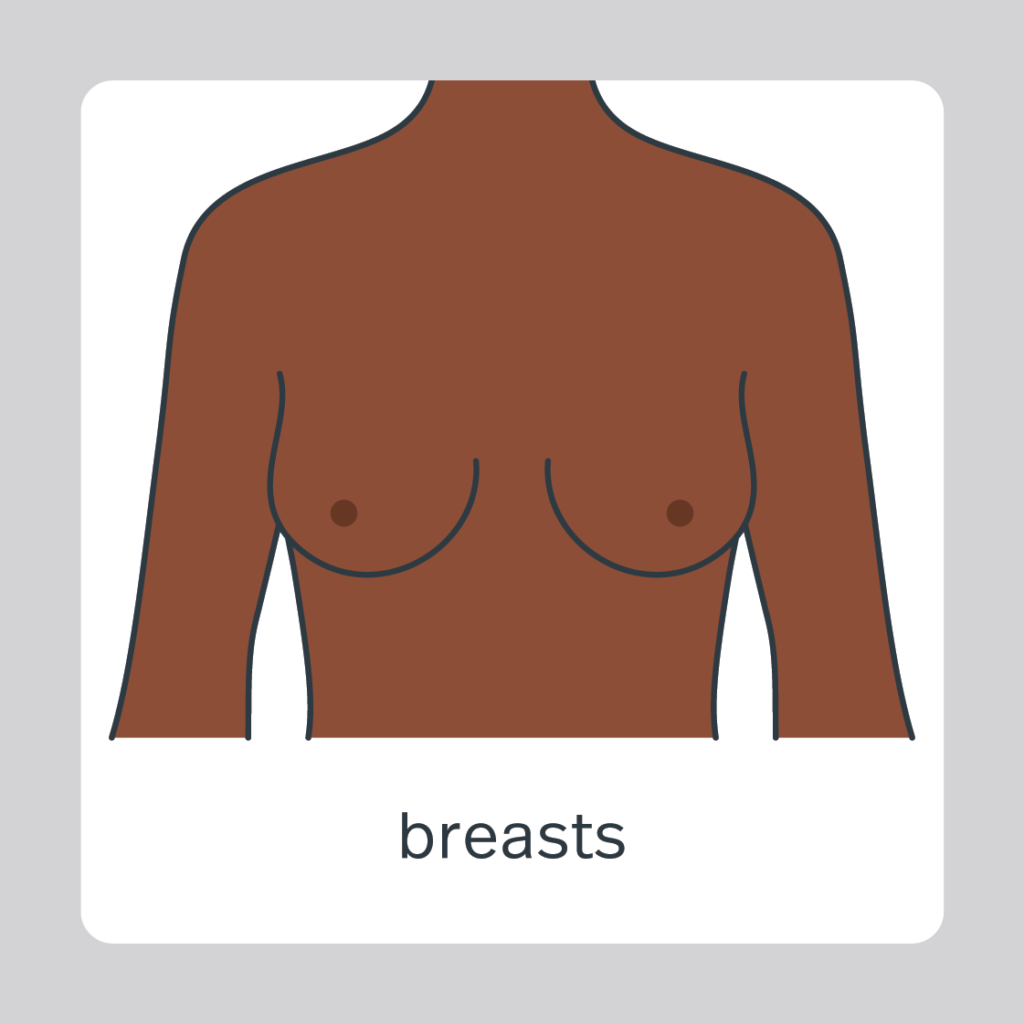




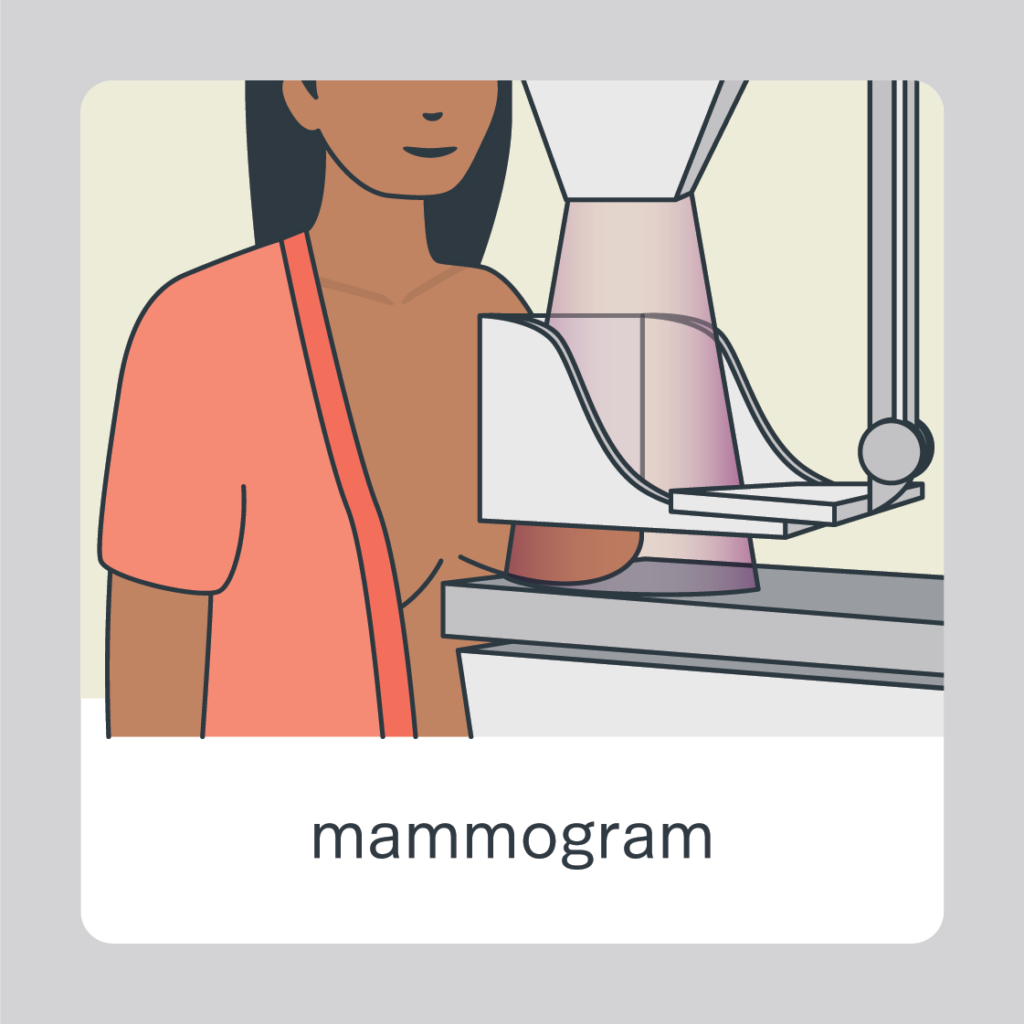

Bowel Check
Anyone at any age can request a bowel check. People 50 years of age and older are invited to have a bowel cancer check. A bowel screening kit is what doctors use to do a bowel check. This checks for small amounts of blood that could mean there is a problem in your bowel.
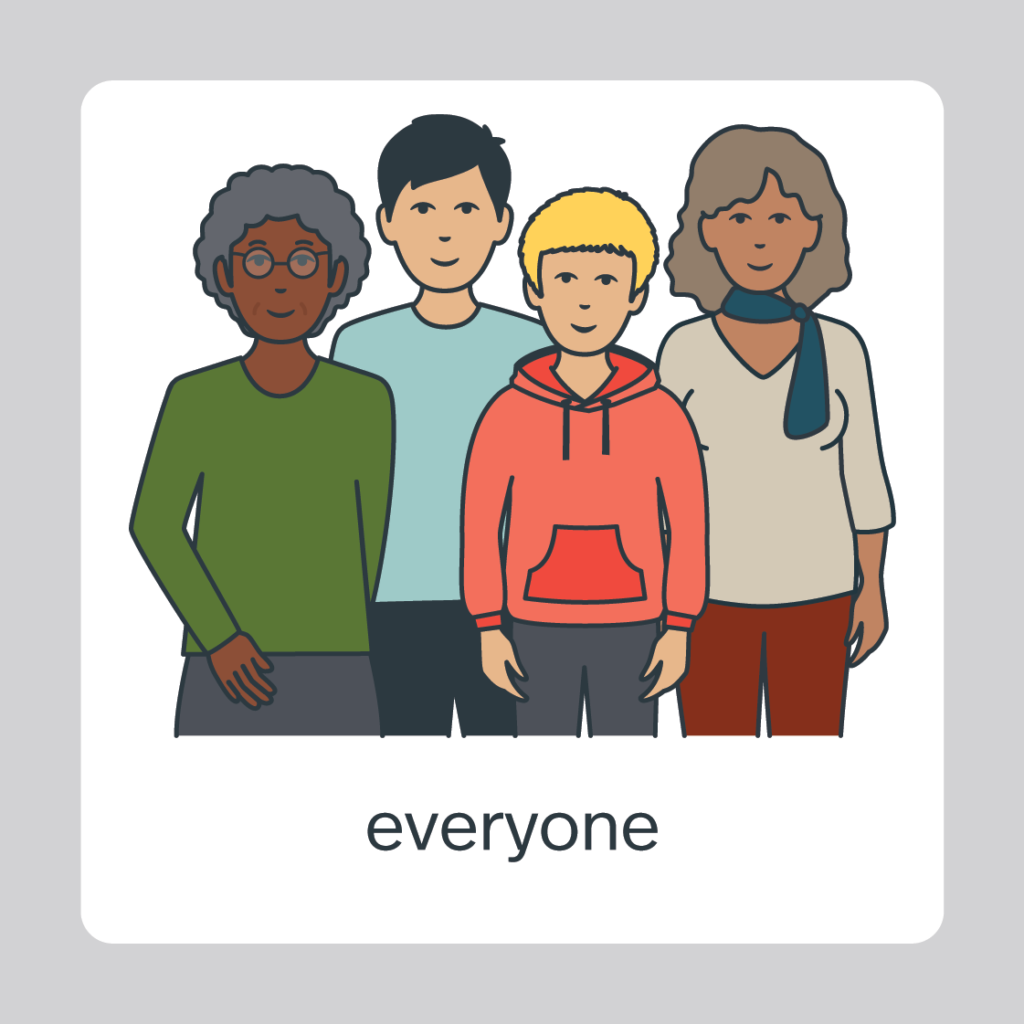



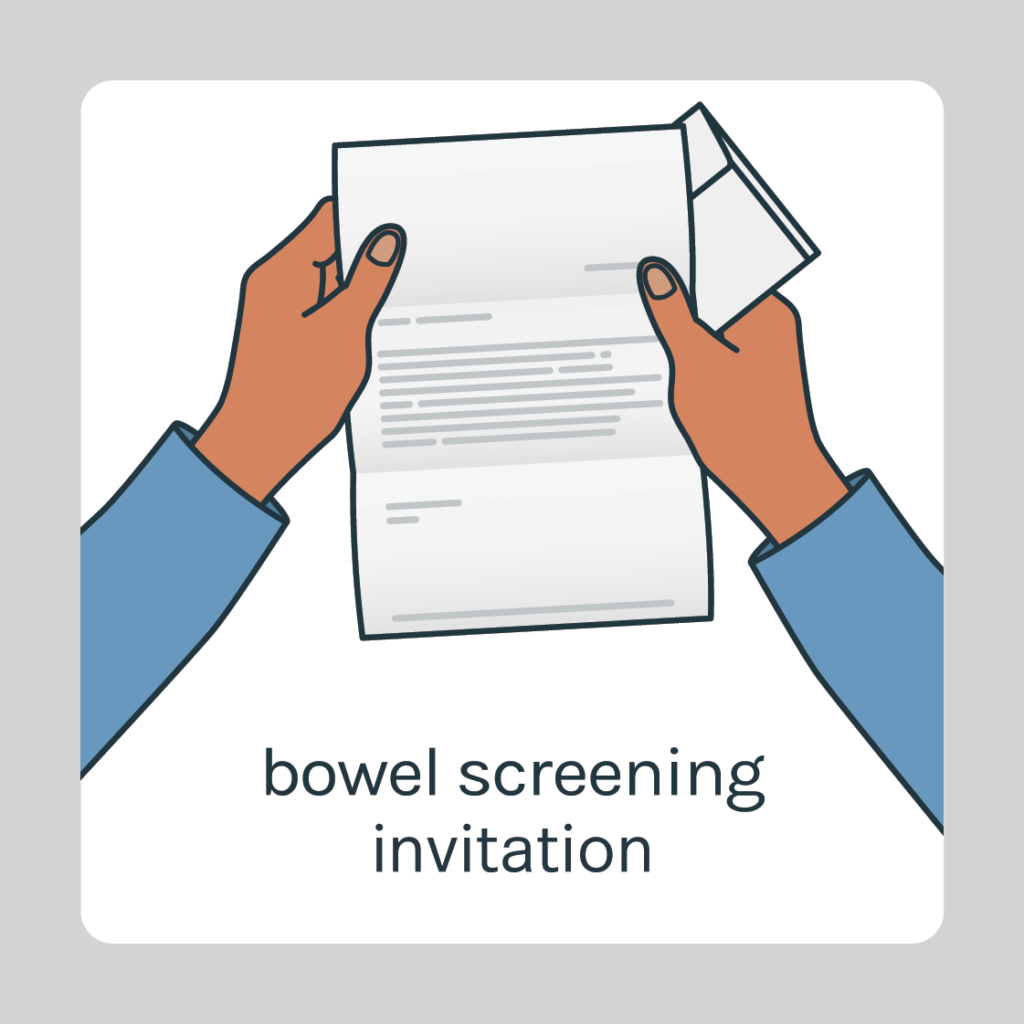
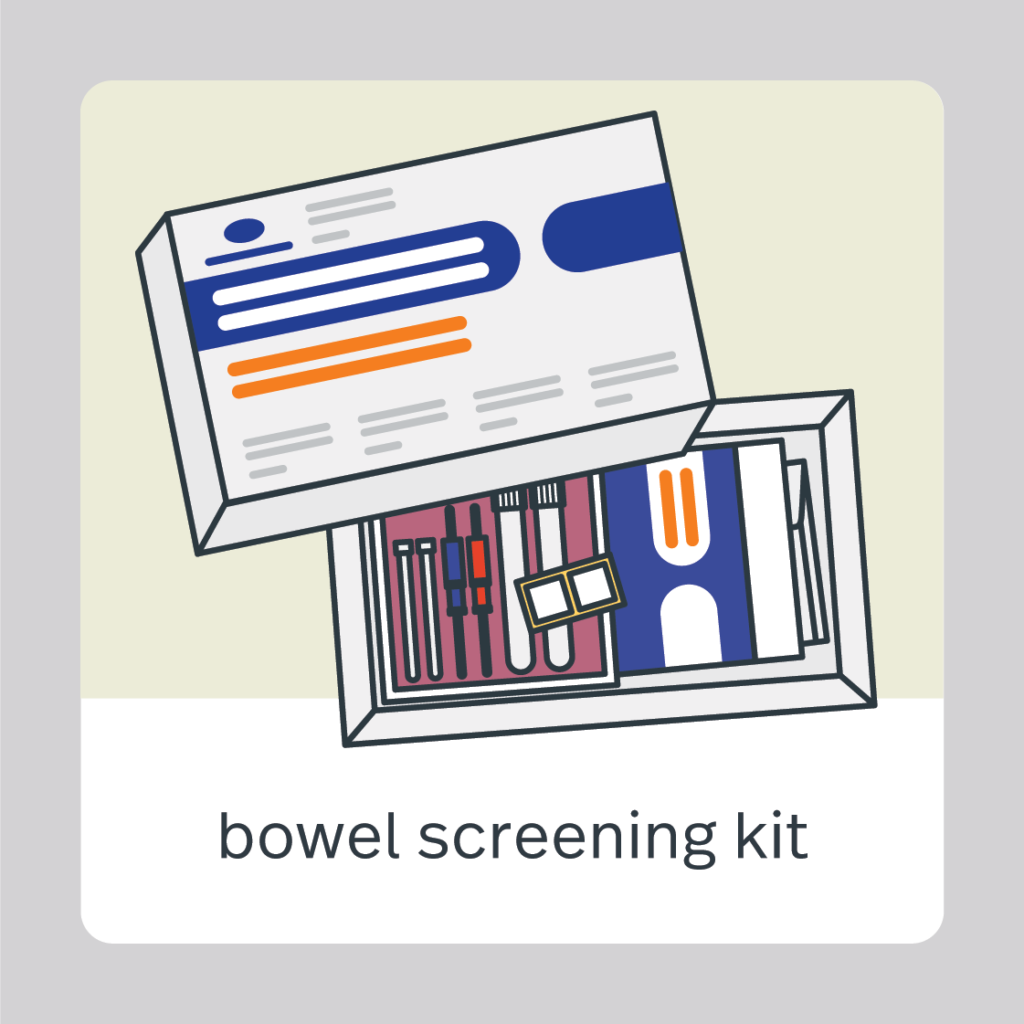
Prostate Check
People with a prostate 40 years of age and older are invited to have a prostate check. A doctor will check if the prostate has gotten larger or has any lumps that need to be tested
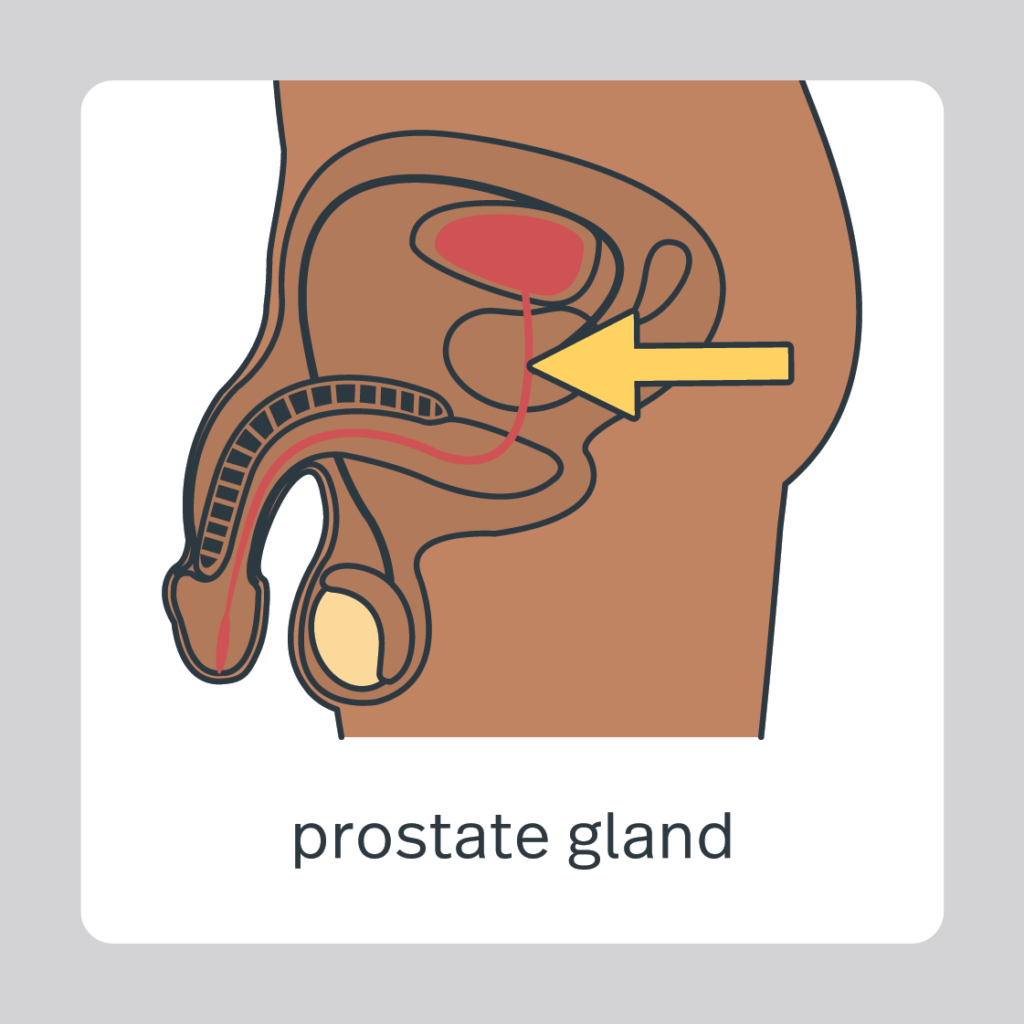



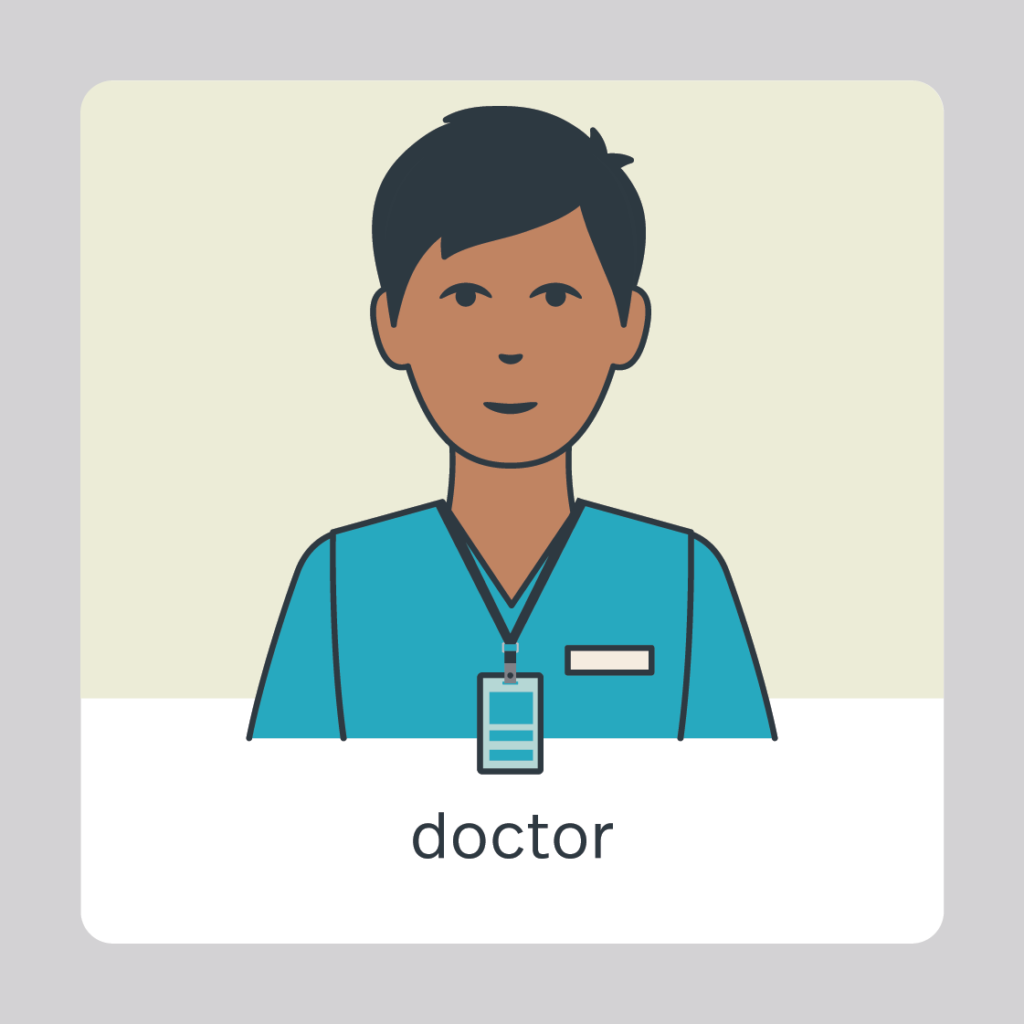

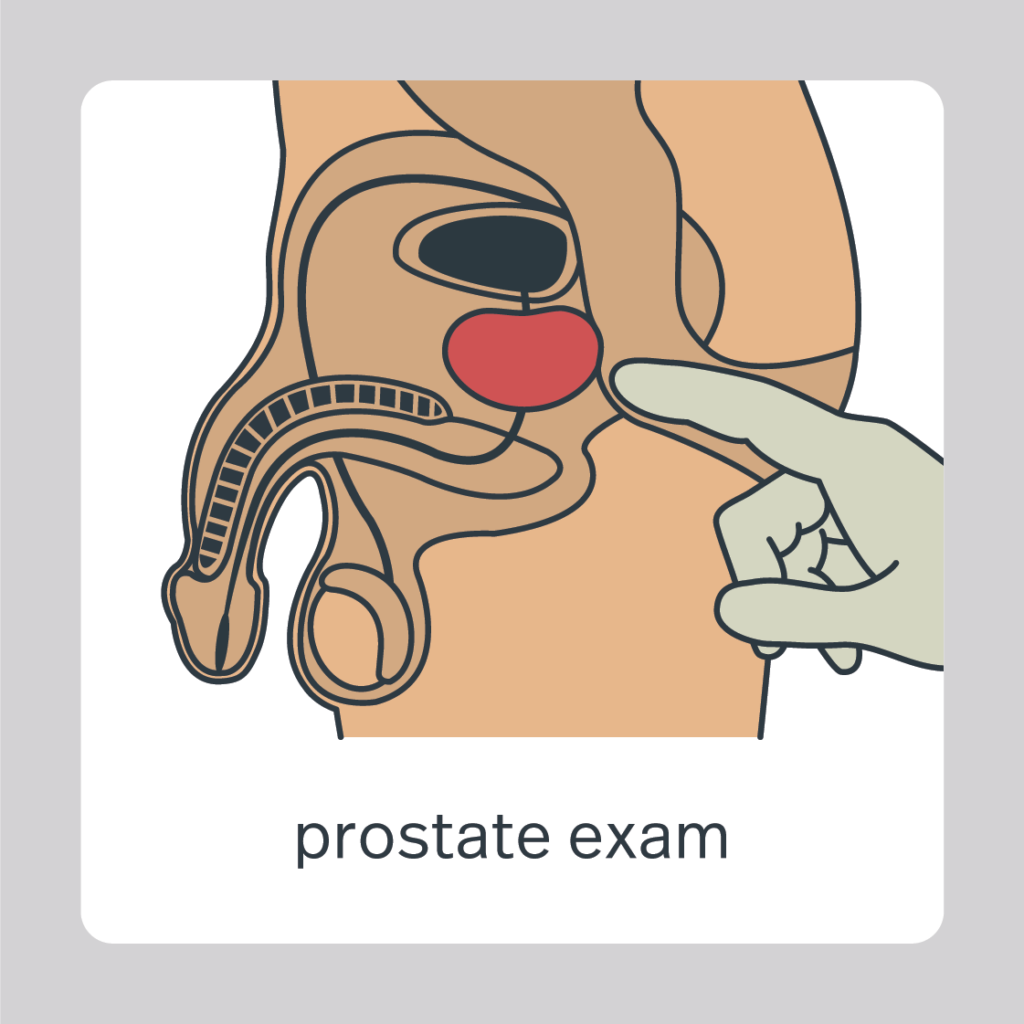

If you are under 40 years of age and would like a prostate
check, tell a trusted person or ask your health professional.
Testicle Checks
It is recommended that people with testicles check if there are any changes or lumps. This is to help find and treat problems early. You can talk to your doctor about any changes you notice or ask them to check for you.
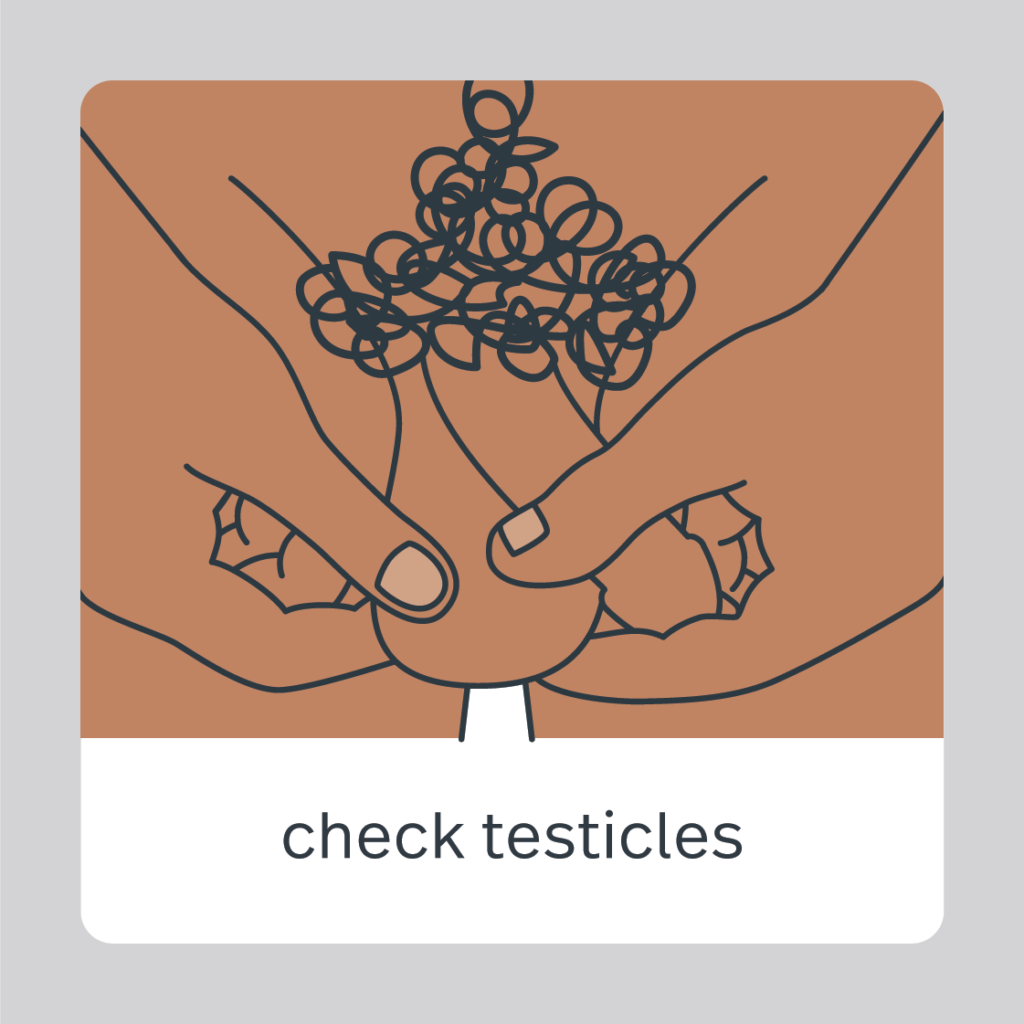



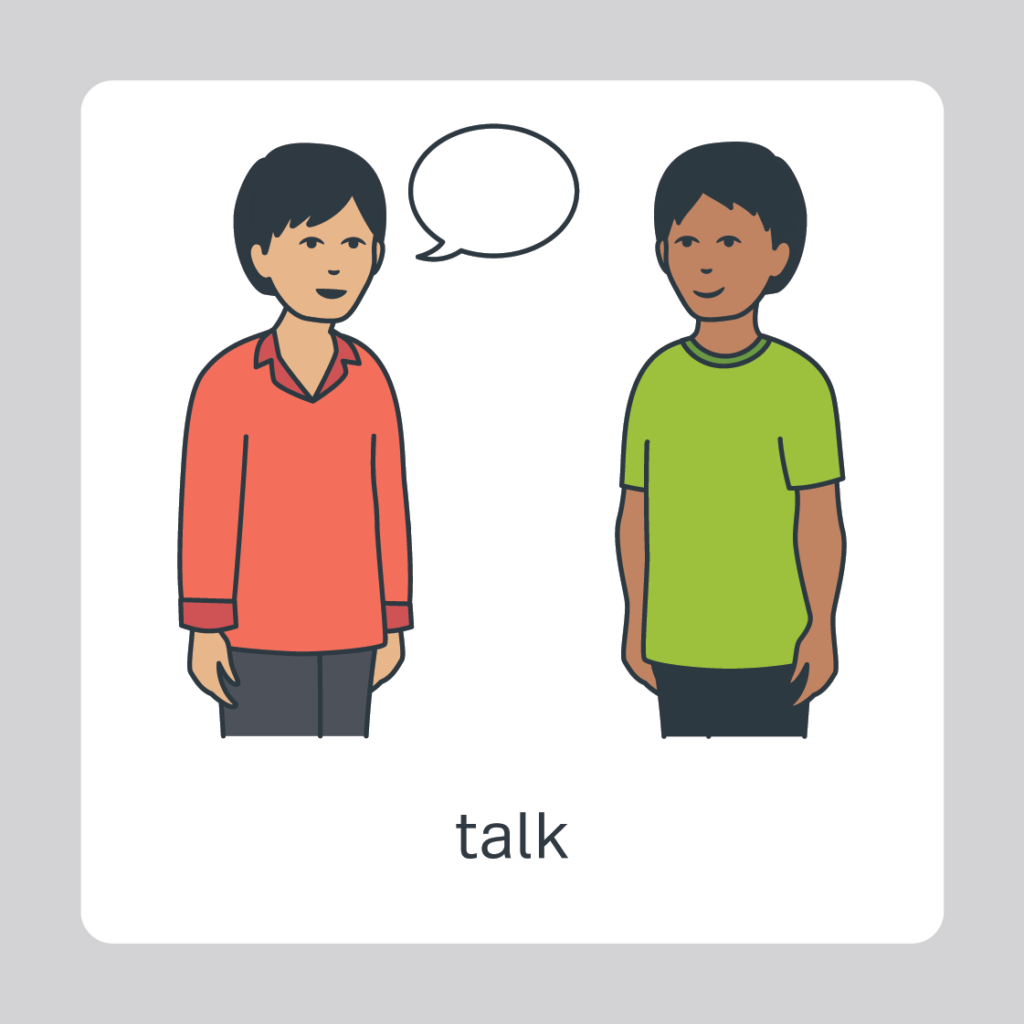


If you would like your testicles checked, tell a trusted person or ask your health professional.
Previous section
Next section
Other sections in Sexual Health
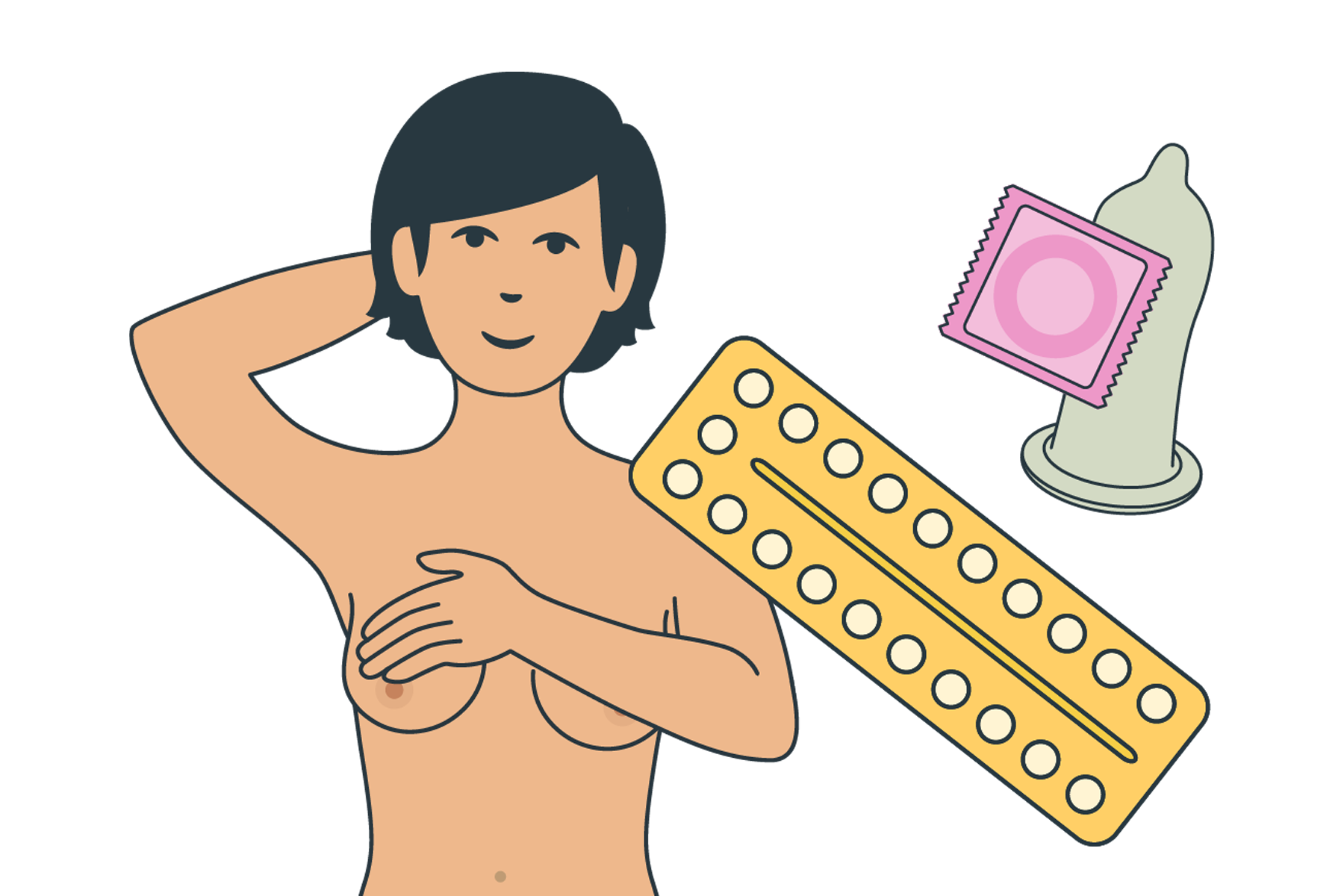
Sexual health is a part of your overall health. Sexual health includes your relationship to yourself and others, sexual health checks and having safer sex. Everybody has sexual health whether they have had sex or not.
Sexual activity can include lots of different things.
It can mean any kind of sexual touch including hand jobs, fingering, oral sex, anal sex, vaginal sex, genital to genital contact, using sex toys with partners, sexual intercourse and other things too. Sex is with another person or persons. Sex needs to be consensual, meaning you both want to do it. You can stop having sex at any time. Sex should feel good for both partners.
Consent is a form of agreement. We consent for lots of things like sharing our belongings or deciding with a friend or support worker what you want to do in the day.
When we talk about sex and consent, we mean both people have to agree to want to have sex. No one should ever force, trick, or guilt you into sex or sexual activities. If they do, it is against the law.
A cervix is inside a body. It is the opening of the uterus at the end of the vagina. When you get a cervical screen this is the part of the body they are checking. Cervical screens help to check if your cervix is healthy.
Private things can be places, behaviour, talk, body parts, and types of touch. Private places are where no one can see or hear you.
Some examples of private places are your bedroom (if there is no one in it, and the door and blinds are shut) or the toilet at home when the door is shut. You can do private behaviours in these places such as masturbate, have sex, or look at pornography. You can only do private behaviours in private places otherwise there are legal consequences.
Health professionals are people who are trained to help other people with their physical, mental and sexual health. Health professionals give advice and can answer questions that you might have about your body, feelings or relationships.
There are lots of different types of health professionals. Some types of health professionals are:
- doctors
- nurses
- physiotherapists
- dentists
- psychologists
- pharmacists
- midwives

